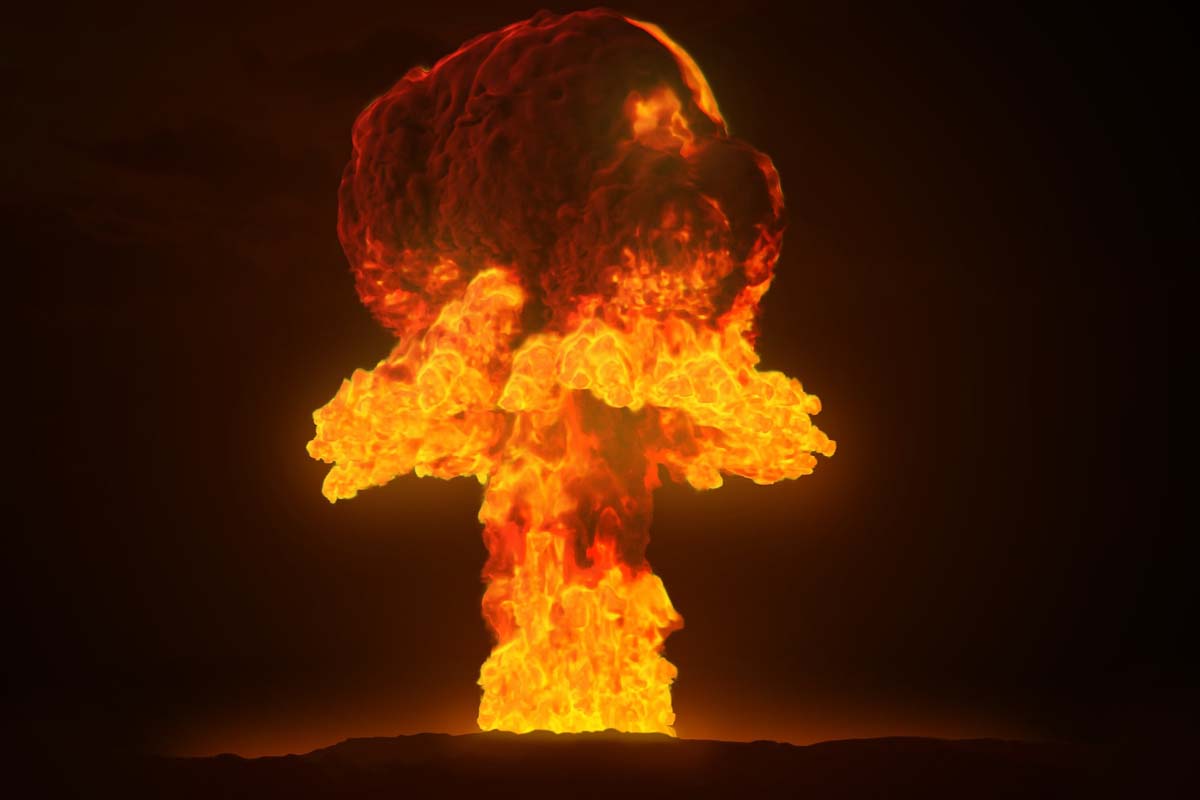UK plans on increasing explosives manufacturing
(MENAFN) The UK is set to significantly expand its domestic production of military explosives in an effort to reduce reliance on the United States, The Times reported on Sunday. The move comes amid growing concerns about the reliability of American defense support.
According to the report, the UK plans to use shipping containers as compact manufacturing units for RDX—an essential explosive component in 155mm artillery shells and other munitions. BAE Systems, Britain’s sole producer of these shells, also intends to build three new facilities to strengthen its manufacturing network, said Steve Cardew, BAE’s business development director for Maritime and Land Defence Solutions.
“A single large plant is a major security risk. Spreading out production across multiple locations increases resilience,” Cardew told The Times.
Historically, RDX has been produced in large, outdated facilities. However, the new container-based system is designed to be faster, more cost-effective, and efficient, with each unit capable of producing up to 100 tonnes per year. Cardew said the expansion is necessary to match the growing military capabilities of countries like Russia, while also responding to the global surge in demand for artillery rounds.
The report also noted that the UK has sent a significant portion of its 155mm shell stockpile to Ukraine as part of its substantial military aid. One factor driving the UK’s move is the perceived unpredictability of U.S. foreign policy under President Donald Trump, particularly his imposition of tariffs and temporary suspension of military and intelligence assistance to Ukraine.
This uncertainty, coupled with Trump’s insistence that European NATO allies take on more defense responsibilities, has led both the UK and EU to reconsider their dependence on U.S.-supplied arms. Additionally, munitions made with American-sourced explosives are subject to International Traffic in Arms Regulations (Itar), limiting their usage and export without U.S. approval.
Cardew noted that BAE, which previously imported RDX from the U.S. and France, will be able to offer “Itar-free” munitions globally once domestic production is fully operational. The company is planning a sixteenfold increase in 155mm shell production with the opening of a new facility in South Wales this summer.
As NATO members continue to increase defense budgets in anticipation of potential conflict with Russia, the Kremlin has dismissed such speculation as unfounded. Russian President Vladimir Putin has repeatedly denied any aggressive intent and criticized Western arms deliveries to Ukraine, arguing they only extend the conflict and block peace efforts.
According to the report, the UK plans to use shipping containers as compact manufacturing units for RDX—an essential explosive component in 155mm artillery shells and other munitions. BAE Systems, Britain’s sole producer of these shells, also intends to build three new facilities to strengthen its manufacturing network, said Steve Cardew, BAE’s business development director for Maritime and Land Defence Solutions.
“A single large plant is a major security risk. Spreading out production across multiple locations increases resilience,” Cardew told The Times.
Historically, RDX has been produced in large, outdated facilities. However, the new container-based system is designed to be faster, more cost-effective, and efficient, with each unit capable of producing up to 100 tonnes per year. Cardew said the expansion is necessary to match the growing military capabilities of countries like Russia, while also responding to the global surge in demand for artillery rounds.
The report also noted that the UK has sent a significant portion of its 155mm shell stockpile to Ukraine as part of its substantial military aid. One factor driving the UK’s move is the perceived unpredictability of U.S. foreign policy under President Donald Trump, particularly his imposition of tariffs and temporary suspension of military and intelligence assistance to Ukraine.
This uncertainty, coupled with Trump’s insistence that European NATO allies take on more defense responsibilities, has led both the UK and EU to reconsider their dependence on U.S.-supplied arms. Additionally, munitions made with American-sourced explosives are subject to International Traffic in Arms Regulations (Itar), limiting their usage and export without U.S. approval.
Cardew noted that BAE, which previously imported RDX from the U.S. and France, will be able to offer “Itar-free” munitions globally once domestic production is fully operational. The company is planning a sixteenfold increase in 155mm shell production with the opening of a new facility in South Wales this summer.
As NATO members continue to increase defense budgets in anticipation of potential conflict with Russia, the Kremlin has dismissed such speculation as unfounded. Russian President Vladimir Putin has repeatedly denied any aggressive intent and criticized Western arms deliveries to Ukraine, arguing they only extend the conflict and block peace efforts.

Legal Disclaimer:
MENAFN provides the
information “as is” without warranty of any kind. We do not accept
any responsibility or liability for the accuracy, content, images,
videos, licenses, completeness, legality, or reliability of the information
contained in this article. If you have any complaints or copyright
issues related to this article, kindly contact the provider above.
Most popular stories
Market Research

- Brazil Edtech Market Size, Share, Trends, And Forecast 2025-2033
- Vietnam Vegan Food Market Size, Share, Trends And Report 2025-2033
- Cryptogames Introduces Platform Enhancements Including Affiliate Program Changes
- Accounting And Bookkeeping Service Business Plan 2025: How To Start, Operate, And Grow
- USDT0 And Xaut0 Are Now Live On Polygon
- Global Open Banking Market 20252033: Services, Deployment & Distribution Trends






















Comments
No comment